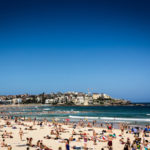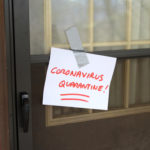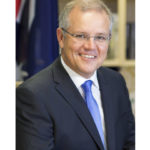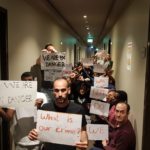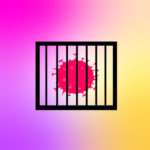Crossing State Borders: A Rundown of the Rules
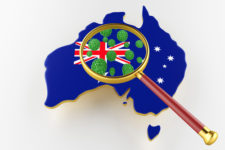
This week, travelling around the country just became nearly impossible as all Australian states except New South Wales, Victoria and the ACT closed their borders. Many Families, friends and lovers are now officially separated, indefinitely.
And, as with many of the rules relating to COVID-19, confusion reigns about border closures, as all but three of the States and Territories take extraordinary measures to stop the spread of Coronavirus.
To complicate matters even further, the rules and penalties for failure to comply are different in each jurisdiction and may result in criminal charges.
Last week, Tasmania put itself into lockdown, turning away any non-essential visitors. Earlier this week South Australia, Western Australia and the Northern Territory followed suit. As of midnight tonight, Queensland too, will close it’s borders.
Here’s what it means, state-by-state:
Queensland
Anyone entering by air or road will need to self-isolate for 14 days. But there are also restrictions regarding who can come in, and who can’t. Exceptions have been made for emergency workers, emergency vehicles, people travelling across the border for work, freight, court orders including family court, anyone travelling for medical treatment or compassionate reasons. For failing to comply with the public health act, in Queensland you can be fined up to $13,345.
Western Australia
The 14-day self-isolation period is also in place for anyone who is not an essential worker. Tourist hotspot Rottnest Island is being considered as a quarantine zone to keep infected people isolated. Failure to comply with Western Australia border and quarantine rules could result in a $50,000 fine or even 12 months’ imprisonment.
South Australia
Twelve border crossings have been established in South Australia to check on people entering the state. In SA, travellers have to sign a declaration about their health, and pledge to under mandatory self-isolation for 14 days. People who live in communities bordering the state will be allowed to come and go, so long as their home towns remain free of coronavirus. In South Australia, the maximum penalty for failure to comply is $25,000,
Tasmania
Only Tasmanian residents and essential workers will be allowed aboard the Spirit of Tasmania ferry. In Tasmania, if you fail to adhere to strict border control measures you risk a $16,800 fine, or possible jail time.
Northern Territory
Arrivals to the Northern Territory will be required to self-isolate for 14 days, and must provide details of where they will be staying while in the Territory. Police officers will be placed on major highways to enforce the border closure and will use surveillance equipment to catch anyone trying to come in via back roads. A $62,000 fine is in place for anyone who breaks this quarantine.
NSW, Victoria and the ACT
Only NSW, Victoria and the ACT remain open to state-wide travellers, although like everywhere else in the country, travellers from overseas are required to self-isolate for 14 days, and not doing so could attract fine in NSW of up to $11,000 and even six months’ prison time. In Victoria, the fine is $20,000.
Who is in charge of monitoring people in self-isolation?
In many cases, state health authorities have taken the lead to ensure those in isolation abide by the rules, but the police can – and actually have, in Victoria – conducted spot checks to ensure people are where they agreed to be. Police also have the powers to lay charges if they believe an offence has been committed.
While its understood that no one has been charged to date, as the virus continues to spread, and as governments and health authorities become increasingly concerned about how to stop it, warnings may not apply. To be clear, self-isolation means exactly that – you cannot come into contact with others during the mandated period.
Social distancing
Our leaders continually stress that it is up to each and every one of us to do our part to fight the spread of COVOID-19 by following the social distancing recommendations, thoroughly washing our hands, and aiming to stay at home, or as local to home as possible.
Other directions at this time include avoiding public gatherings. At home gatherings are also prohibited. This crackdown on inter-personal social interaction has led to many people to be inventive about how they stay in touch with others, organising online events and FaceTime hook-ups. Workplaces are even introducing ‘virtual’ coffee get-togethers and Friday night drinks for employees now working remotely.
We’re human after all, even the introverted amongst us need contact with other humans from time to time, and right now, it’s important that we keep in touch with friends, family and loved ones to keep our spirits high.
With more community services and businesses now in lock down, and more people being encouraged to stay home there are fears for declining states of mental health over the coming months, as people try to cope with confinement, exacerbated by the fact that we don’t actually know how long these unprecedented restrictions will apply.
Of course, anxiety levels are already high, not just in terms of fear of actually contracting the virus, but of the very real prospect of job loss, financial stress, and the great big unknown – what kind of Australia will emerge from the crisis. What will life be like when Coronavirus is over?
For anyone needing to seek professional mental health advice for themselves or a loved one, Beyond Blue has a range of resources and offers counselling by telephone and webchat.


